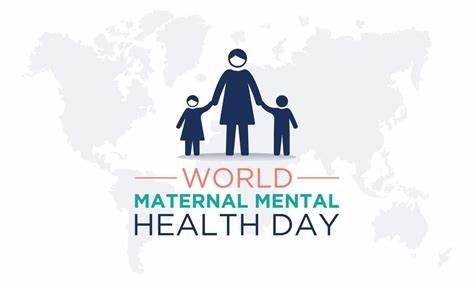World Maternal Mental Health Day: Recognizing the Struggles and Strength of Motherhood

World Maternal Mental Health Day, observed annually on May 7, is dedicated to raising awareness about maternal mental health issues. It highlights the importance of advocacy, education, prevention, and accessible, effective treatment and care for women experiencing perinatal mood and anxiety disorders.
According to studies, 13% of women worldwide experience mental health challenges after childbirth. Pregnancy brings about a range of physical, emotional, and social changes, which can sometimes lead to conditions like anxiety or depression. This day serves as a reminder of the need to support women who are affected, ensuring they receive the care and treatment required for recovery.
Mental Illness During and After Pregnancy
The World Health Organization (WHO) estimates that 10% of pregnant women globally suffer from a mental health condition, primarily depression, and that 13% of women experience mental health issues after giving birth. In low-income countries, these figures are even higher: 15.6% of pregnant women and 19.8% of postpartum women are affected.
While mental health challenges during pregnancy can affect any woman, certain conditions increase the risk. According to WHO, risk factors include:
- Lack of social support
- Poverty
- Migration
- Excessive stress
- Exposure to violence
- Emergencies or conflict situations
- Natural disasters
Common perinatal mental health conditions include:
- Antenatal depression
- Postpartum depression
- Anxiety disorders
- Perinatal obsessive-compulsive disorder (OCD)
- Postpartum psychosis
- Post-traumatic stress disorder (PTSD)
Effects of Maternal Mental Disorders on Mothers and Children
If left untreated, maternal mental health conditions can have serious consequences for both mothers and their families. Mothers with mental health disorders are at increased risk of physical illness and emotional distress. Severe cases may lead to self-harm or suicide.
Additionally, maternal mental illness can impact:
- Mother-infant bonding
- Breastfeeding and infant care
- Child development and growth
Children of mothers with untreated mental disorders may experience developmental delays, malnutrition, and emotional or behavioral issues. On World Maternal Mental Health Day, the focus is on spreading awareness that these conditions are treatable and that mild, moderate, and severe cases can benefit from various levels of care and support.
Depression After Childbirth (Postpartum Depression)
It’s common for new mothers to experience the “baby blues” temporary emotional changes such as mood swings, anxiety, crying spells, and difficulty sleeping, that typically last a few days to two weeks after delivery.
However, some women develop postpartum depression, which is more severe and persistent. According to the WHO, around 20% of women in low-income countries suffer from clinical depression following childbirth.
Depression can impair a mother’s ability to care for her child and herself, which may negatively affect the child’s nutrition, emotional development, and overall well-being.
Symptoms of Postpartum Depression May Include:
- Intense mood swings
- Excessive crying
- Difficulty bonding with the baby
- Withdrawal from loved ones
- Loss of appetite or overeating
- Insomnia or excessive sleep
- Feelings of hopelessness
- Thoughts of self-harm or suicide
While these symptoms often begin within the first few weeks postpartum, they can also arise during pregnancy or up to one year after childbirth.
Conclusion
World Maternal Mental Health Day reminds us of the importance of maternal mental health. With the right support systems, awareness, and timely intervention, maternal mental health conditions can be treated. This observance is a call for care and action to prioritize maternal mental health, as no mother should suffer for birthing another life.





